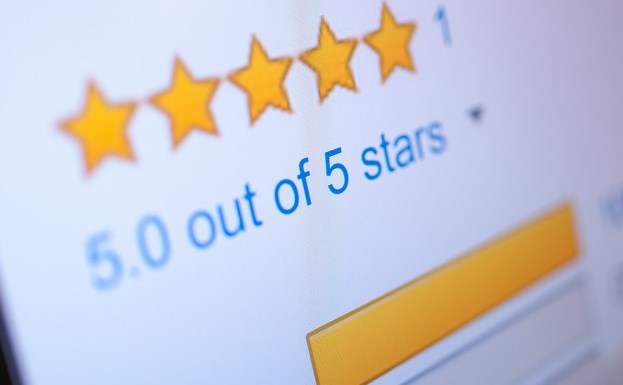Blog

Harnessing the Power of Online Reviews
If you ever bought something online, you’ve probably encountered a few customer reviews – you might’ve seen an aggregated star rating for a device you wanted to buy, or you might’ve read a poorly-spelled user review about someone’s bad experience with it. Yes, online reviews vary in attention to detail, clarity and readability, but they have an undeniable effect your average consumer.
A 2013 Dimensional Research survey of more than a 1000 consumers, revealed than an overwhelming 90% of online shoppers who recalled reading user reviews claimed that positive ones influenced their buying decisions. On the other hand, around 86% of respondents said that their decisions were influenced by negative online reviews. As you can clearly see, reviews can have a powerful influence on the behavior of your target demographic, and therefore, the performance of your company.
How Consumers Use Reviews
For starters, let’s see how these reviews benefit your buyers and how they impact their decisions, because it is important to see where they fit into the buying cycle. In most cases, by the time your customers start looking at reviews, they have already figured out their needs, and they are now in the challenging process of choosing a business. For example, the UK online gambling industry is expanding at an incredible pace (it grossed more than £3.5 last year), and when selecting microgaming casinos, most users have to look at a few reviews to narrow down their choices.
You have to be aware that the gap between reading a product review and making a purchasing decision is incredibly small, and usually results in a yes-or-no decision immediately. So if you have a small company, your bottom line will definitely be influenced by your online reputation. Lastly, how many reviews customers actually read before they make up their minds? Well, according to BrightLocal, roughly 67% of the buyers read around 6 reviews before forming an opinion about a specific business.
Gathering Reviews
If your client or a customer is satisfied with your products or services, there’s nothing wrong about asking him or her to leave you a review. However, you have to be extremely cautious, because certain sites like Yelp will not accept reviews if they believe you’ve personally asked your customers to specifically leave only positive reviews. And other review sites have similar rules as well, so make sure that you read their policies before you ask someone for a review.
So any time a client compliments your business, whether it’s in-person or via email, you should let them know that you would appreciate if they could give you some feedback. Furthermore, you can offer an incentive for a customer to leave a review, due to the fact that giving small discounts for reviews and buying reviews are not exactly the same thing. But we should note that Amazon recently banned these types of reviews, unless they are facilitated through their Vine program, which consists of a network of trusted reviewers.
Managing Your Online Reputation
Finally, you are undoubtedly wondering how you should respond to any negative reviews and criticism. The first thing you need to do is set up Google Alerts, if you want to be instantly notified every time your company is mentioned on the Internet. This way, you can take a more practical approach to reputation management. If you encounter a negative user review, you might have an urge to contact the site, and demand that they take the review down. But instead of letting your emotions get the better of you, take a second to calm down, and deal with it like you would with any criticism.
This means that you should treat it as a conversation where you (or any of your employees) go in, ease up the situation and try to make up for the customer’s dissatisfaction, whatever it may be. When possible, highlight more positive reviews and bear in mind that any negative criticism should be a catalyst for conversation and improvement within your company.



Comments